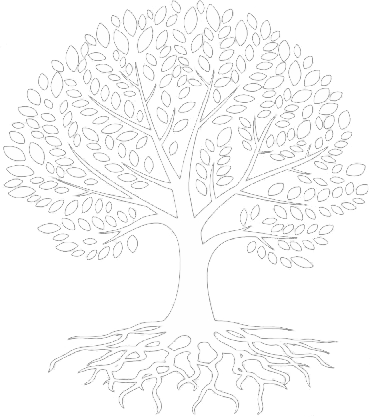
Professionally Certified Dry Needling Conveniently Located in Bondi Junction, Sydney
Meet Your Dry Needling Specialist in Bondi
Hi, I'm Gavin from Acupuncture Grove, based in Bondi Junction, Sydney.
Dry needling evolved from treatments in the 1940s where researchers were injecting painful areas with anaesthetic. They eventually found that by using hypodermic needles without any injectable substance, similar results were observed. Hence the term “dry” needling was adopted, as opposed to a needle with a liquid injection.
If you've been struggling with neck pain, back pain, or maybe a stubborn sports injury, then dry needling may be a suitable treatment option. If you're looking for dry needling in Bondi, then book your initial consultation today.

What is Dry Needling Used For?
Myofascial trigger points are hyper-irritable regions within skeletal muscle that tend to be tight and painful on palpation. They can refer predictable patterns of pain and dysfunction. Dry needling is often used by practitioners when working with conditions such as:

Neck Pain

Headaches

Shoulder Pain

repetitive Strain Injuries

Elbow Pain

Wrist Pain

Back Pain

Sporting Injuries

Hip Pain

Knee Pain

Ankle Pain

Plantar Fasciitis
If you’re ready to try dry needling in Bondi Junction, please don't hesitate to reach out. Book an initial consultation or email me with the links below:
Is Dry Needling The Same As Acupuncture?
-
Different Theories
No. The same style of acupuncture needles are used for both dry needling and traditional acupuncture, but the theory behind treatment are different.
Dry needling will tend to focus only on musculoskeletal complaints such as pain and sporting injuries. The theories used are based on myofascial trigger points, muscle anatomy and physiology.
Acupuncture was used as a traditional form of medicine for several thousand years in China and surrounding East-Asian countries for all types of complaints. The theory used is based in traditional texts and so the language can appear foreign to the modern person. Essentially the body was viewed as an ecosystem and acupuncture primarily dealt with regulating blood flow to restore healthy ecology to the body.
Within acupuncture there are also “ashi” points which share many similarities with myofascial trigger points in that they tend to be tender on palpation and elicit a vocalised reaction (“ashi” mean “oh yes”).
A well trained acupuncturist will be able to use dry needling as part of their approach, but a dry needler won’t be able to use acupuncture treatments without 4+ years of extra study.
Why Choose Us For Dry Needling in Sydney
-
Qualified Care
If you’re looking to try dry needling in Sydney, a good option is with an acupuncturist who has training in myofascial trigger points. With an acupuncturist you’ll be getting someone who has undergone many hundreds of hours of training with needling technique and who continues to practice and use these techniques on a regular basis.
Other practitioners offering dry needling will have typically done just a weekend course before being able to incorporate it into their practice. If you’re going to try it with someone who only has a dry needling qualification, make sure that they’re well experienced and use it regularly as part of treatment, not just once in a while.
-
Holistic Practice
At Acupuncture Grove in Bondi Sydney, I incorporate dry needling techniques into my acupuncture treatments where appropriate. With a background in remedial massage therapy, I enjoy working with myofascial trigger points as part of my approach to acupuncture. I also incorporate traditional distal acupuncture, motor point acupuncture and electro acupuncture into my practice.
If you would like to try dry needling in Sydney’s eastern suburbs, consider Acupuncture Grove. You can book online here or reach out with any questions below.
Frequently Asked Questions
Most people feel very little discomfort during dry needling. You may notice a small twitch response or brief muscle ache when the needle activates a trigger point. This sensation usually passes quickly and is often followed by a feeling of relief and relaxation in the treated area.
Yes. When performed by a qualified practitioner, dry needling is considered safe. At our Bondi Junction clinic, we use single-use, sterile needles and follow strict hygiene protocols. Some patients may experience mild soreness after treatment, which usually resolves within 24–48 hours.
The number of sessions depends on your condition, its severity, and how your body responds to treatment. Some people feel significant improvement after just 1–2 visits, while others may benefit from a series of treatments combined with rehabilitation exercises. Your practitioner will discuss a personalised plan with you.
Light movement and stretching are usually fine after dry needling, and may even help reduce post-treatment soreness. However, we generally recommend avoiding strenuous exercise for 24 hours to allow your muscles to recover. Your practitioner will give you specific advice based on your treatment.

Visit Our Clinic
PHONE
LOCATION ADDRESS
2/15 Bronte Rd,
Bondi Junction NSW 2022
Located across the road from Westfield Shopping Centre
OPENING HOURS
MON: 9:00am - 6:30pm
TUE: Closed
WED: Closed
THU: 9:00am - 6:30pm
FRI: 8:00am - 1:30pm
SAT: Closed
SUN: Closed







